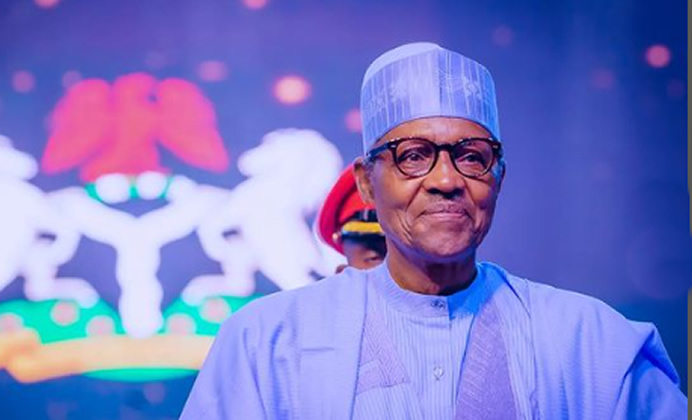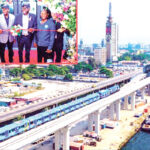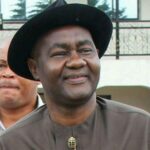
The President, Major General Muhammadu Buhari(retd.), in demonstration of his unalloyed commitment to quash various groups of terrorists and all other armed criminals whose activities are jeopardising the country’s sanctuary, gave the leadership of the military and other security agencies of the country strong instruction to put an end to the prevailing sense of insecurity by the end of this year. The impact of this order is already being felt, I must say.
At the graduation ceremony of the National Defence College Course 28 in Abuja held in August this year, Buhari through the Minister of Defence, Major General Bashir Magashi (retd.), also exhorted heads of security and defence services in the country to promote and implement comprehensive security philosophies of joint efforts and synergy through interagency collaboration to tackle the security challenges confronting the country.
Although, the military and other security agencies operate in a closed system for some security and strategic reasons, the urge by Buhari remains relevant; hence the closed system of administration does not foreclose the contributions of certain critical ministries, departments and agencies that can generate useful information or geospatial data and even the support of well-meaning Nigerians. Every one is a stakeholder in the matters of security. The spirit of patriotism requires the support of all and sundry for the defence of the country’s territorial area and the preservation of lives and property.
As the country’s apex organisation in surveying and mapping matters, the Office of the Surveyor General of the Federation has a fundamental role to play in the fight against armed criminals in Nigeria. OSGoF is aware of its strategic commitment to the operations of the military and paramilitary agencies of the country; and is definitely not resting on its oars.
The heading for this article, “Geospatial intelligence for national security” was the theme for the survey coordination conference recently held at the expense of OSGoF at the African Regional Institute for Geospatial Information Science and Technology, Obafemi Awolowo University, Ile-Ife, Osun State. The theme, apart from reechoing the relevance of geospatial intelligence towards achieving a robust national security system, was intended to provoke plausible national discourse on the country’s security challenge that may inform feasible policies. The paper presented by the Chief Executive Officer of Robotics and Artificial Intelligence Nigeria and robotic engineer, D Olusola Ayoola, who set the tone for the conversations of the experts and professionals of surveying and geo-informatics that converged in Ife for the conference.
Sambisa Forest, which according to Dr Ayoola was a thriving game reserve, 18 times the size of Lagos State, was now synonymous with terrorism; many such resourceful places and certain buildings in the country have become hideouts for criminals like the kidnappers, armed bandits/robbers, militants and terrorists. He reechoed the fact that the threats dictated by the activities of the criminals extended to nearly all industries, including rail transportation, telecoms and farming, not to talk of human lives that are sacred.
Speaking on the imperativeness of collaboration in addressing the insecurity, the speaker emphasised the fundamental and central role of surveyors in ensuring that criminals have no hiding place in the country. He said there was the need to track human activities more seriously. Geospatial intelligence, according to him, combined all other types of intelligence, be it counter, signals, measurement and signature, technical, human, imagery or open-source intelligence but with a focus on their geographical coordinate geospatial intelligence is a product of surveying. Ayoola noted that the United States’ National Geospatial Intelligence Agency planned to double spending to monitor global economic activity from space with the use of geospatial data so as to improve insights on trends such as the flow of raw materials across the world. The NGIA is responsible for coordinating the collection of geospatial data for national security and planning.
OSGoF is a solution provider. The military and all other security agencies must collaborate with our surveyors through the instruments available to OSGoF for generating adequate geospatial intelligence for their engagements. To grow enough professionals for the country in surveying and geo-informatics, the advisory board on training at the Survey Coordination Conference tasked the Surveyor General of the Federation, Abuduganyu Adebomehin and his counterpart, President of the Surveyors Registration Council of Nigeria, Clement Nwabichie, to take steps towards improving on the curriculum of tertiary institutions offering surveying and geoinformatics. Ayoola warned against outsourcing our security business to external groups or individuals. We must, therefore, groom ours to erase mutual suspicion and build the desired trust among ourselves.
With the advancement in technology, effective surveillance can make government’s monitoring of activities over its territory all-pervading when the territory is properly surveyed and mapped. One of the solutions to the challenge of our security proposed includes district wide-view drone based camera system. The protection of our rail lines and pipelines is said to be possible with this system. According to Ayoola, there is the need for the panoramic coverage of the entire railway system for quick detection of approaching terrorists or vandals, and that a route for emergency rescue is provided for the adequate use of the intelligence gathered. The citywide view drone based camera system is recommended since there is the risk of enemies shooting down drones.
Computer vision algorithm for automated camera detection and tracking is also accessible. In the explanation of Ayoola, “There is a technology that applies computer vision to keep 24 hours surveillance of an entire district without reliance on human.” The thermal imagery and night vision capacities are vital to ensure the quality of video footages for good effective analysis. Others are Carbon Emission Tracker Drone which through it some other instruments can scan an entire forested area to determine an activity in a particular place, and the non-invasive tracking of human traffic flow that can help to track suspicious activities in registered business buildings.
The importance of strong collaboration of the military and other security agencies with OSGoF for generating geospatial intelligence for effective utilisation by the relevant authorities cannot be overemphasised. It is a sure way for the country to achieve sound and effective security system for successful protection of human lives and facilities both from external and internal enemies of the Nigerian state.
- Michael Abu is the Head of Press and Public Relations, OSGoF, Abuja





